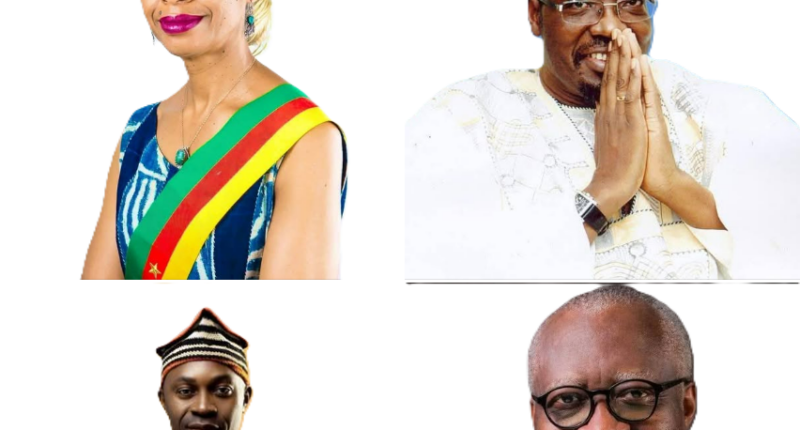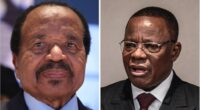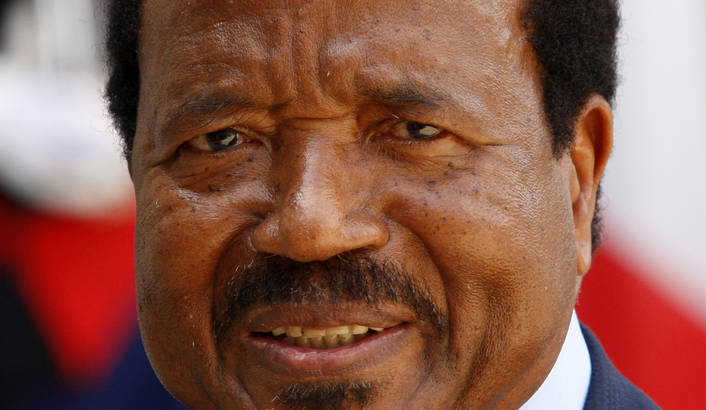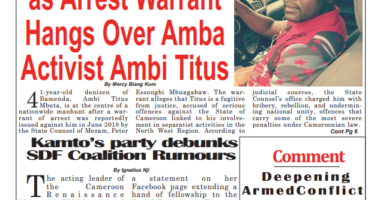Foumban Group’s Yaoundé Conclave Ends in Stalemate: No Consensus on Presidential Candidate Ahead of 2025 Elections
By Andre Momo
Yaoundé, Cameroon – August 10, 2025
In a significant setback for Cameroon’s opposition forces, the Foumban Group’s highly anticipated three-day conclave in Yaoundé concluded without an agreement on a single consensual candidate for the upcoming October 12, 2025, presidential election. The gathering, aimed at forging unity among diverse political actors, instead highlighted deep divisions within the coalition, raising questions about the opposition’s ability to challenge President Paul Biya’s longstanding grip on power.
The Foumban Group, a coalition of opposition figures, civil society leaders, and activists named after its inaugural meeting in Foumban, had hoped the Yaoundé sessions would build on prior momentum to present a united front. According to a press release from Agbor Balla Speaks, the advocacy platform led by prominent human rights lawyer Felix Agbor Balla, the conclave ended without the breakthrough needed to consolidate support behind one candidate. “Time is of the essence and every day counts,” the statement emphasized, underscoring the urgency as the election clock ticks down.
Key Resolutions Adopted Amid Deadlock
Despite the lack of consensus on a candidate, the group did adopt two key resolutions to advance their agenda:
1. Establishment of a Technical Committee to Consolidate a Common Program: This committee will harmonize the political, social, and economic visions of participating candidates into a shared platform. The goal is to create a unified manifesto that “inspires hope and delivers meaningful change for the people of Cameroon,” as stated in the release. This move signals an intent to prioritize policy over personality, potentially appealing to voters disillusioned with the status quo.
2. Creation of a Working Group for Managing Polling Station Representatives: A dedicated team will coordinate the deployment of representatives across polling stations nationwide and abroad. This initiative aims to ensure transparency and security in the electoral process, addressing longstanding concerns about voter fraud and intimidation under the current regime.
The press release highlighted that the first two meetings—in Foumban and Yaoundé—have laid the groundwork, but stressed the imperative for the next conclave in Buea to “conclude the process and present the Cameroonian people with a single candidate.” The coalition reaffirmed its commitment to unity and a credible democratic transition, rooted in the will of the people. “The momentum from Foumban and Yaoundé must now translate into action,” it declared, framing the selection of a unified candidate as essential for leading the sovereign people to victory in October.
Analysis: A Fragile Unity in the Face of Entrenched Power
This impasse in Yaoundé is more than a procedural hiccup; it exposes the inherent challenges facing Cameroon’s fragmented opposition. For decades, President Paul Biya, now 92 and in power since 1982, has maintained control through a combination of patronage, repression, and electoral manipulation. Opposition groups like the Foumban Group represent a burgeoning push for change, particularly amid the Anglophone crisis that has simmered since 2016, fueling demands for federalism or even secession in the English-speaking regions.
The failure to agree on a candidate could splinter the coalition further, diluting votes and inadvertently bolstering Biya’s Cameroon People’s Democratic Movement (CPDM). Historical precedents in Cameroon, such as the 1992 election where divided opposition allowed Biya to claim victory amid allegations of rigging, serve as a cautionary tale. By shifting focus to Buea—a symbolic choice in the Southwest Region, heart of the Anglophone unrest—the group may be attempting to rally grassroots support and address regional grievances, potentially strengthening their base.
However, the resolutions adopted offer a silver lining. The technical committee’s emphasis on a shared platform could transcend individual egos, fostering a policy-driven alliance that resonates with Cameroon’s youth, who make up over 60% of the population and are increasingly vocal about unemployment, corruption, and inequality. Similarly, the polling station working group addresses a critical vulnerability: in past elections, lack of oversight has enabled irregularities, as documented by international observers like the African Union.
Yet, time is not on their side. With just two months until the polls, the Buea meeting must deliver results to avoid perceptions of disarray. If successful, a unified candidate could galvanize diaspora support and international pressure for fair elections. Failure, however, might reinforce the narrative of an ineffective opposition, allowing Biya to extend his rule into a fifth decade.
As Cameroon stands at this crossroads, the Foumban Group’s next steps will be closely watched. Will Buea break the deadlock, or will internal rivalries pave the way for another term of the status quo? The answer could define the nation’s democratic trajectory for years to come.
BaretaNews will continue to monitor developments in the lead-up to the 2025 elections. For more updates, follow us on social media.





